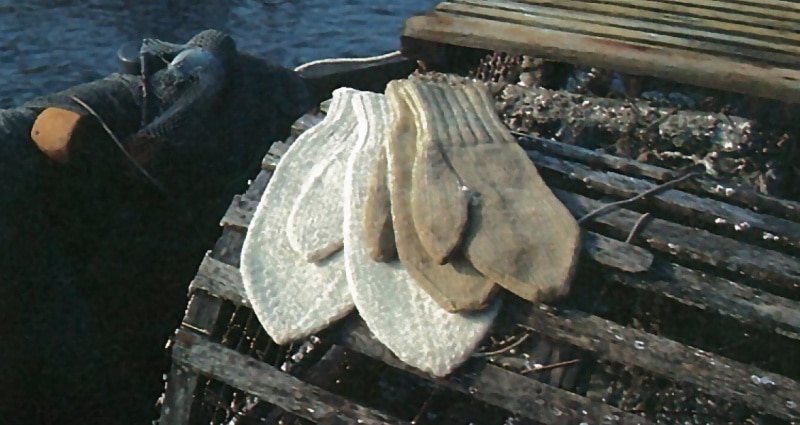How to Make New England Boiled Mittens
Rediscovering the amazingly tough New England boiled mitten.

Boiled wool mittens pattern directions.
Photo Credit : Yankee Magazine/February 1983Useful stuff from 83 years of Yankee
Back in 1983, Yankee contributor Robin Hansen wrote about the nearly lost craft of New England boiled mittens, which had been the choice of fishermen for hundreds of years. Worn wet and shrunk to fit, these wool mittens were such superb insulators that when a fisherman peeled them off at day’s end, “his hands were so red and warm they steamed in the cold air.” The article included “probably the only instructions in print anywhere for this kind of mitten,” provided by expert knitters on Chebeague Island, Maine. But a few years later, Hansen posted this critical update in our “Quips, Quotes & Queries” column:
Following the appearance of the article, knitters from all over New England wrote that their mittens wouldn’t shrink according to instructions. In answer to this frustration, the knitters of Chebeague Island said only that the mitten must be used as it was intended, that it was never meant to be worn on the trolley in Boston or in the north woods. We also heard from some fishermen’s wives on the New England coast whose husbands were delighted with their new mittens, which did shrink and did keep their hands warm when wet.
So our instructions were right, but not precise. When a fisherman wets his mittens in the hot water from his engine, tramps on them on a wet, salty deck, and dries them on the manifold, his mittens shrink. The principle: Wool shrinks because of sudden changes from hot to cold and back.
Recently, I found instructions on simulating the changes in temperature that a fisherman’s mittens face. They are in a book by Vibenke Lind called Strik med Nordisk Tradition (Knitting in the Nordic Tradition)—and are written in Danish, which gives you an idea of why I didn’t find them earlier.
Want to make these mittens for a classic New England gift this holiday? Go to newengland.com/fishermens-mittens.


